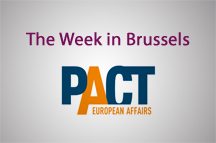For observers, the 2009-2014 European Parliament has been a disappointment. There are many reasons for this, but they basically come down to the following two:
- The transformation of the “Community method” – where each Institution fulfilled the role assigned to it by the Treaties – into a kind of legislative anarchy, with the Commission, Parliament and Council all seeking to maximise their power. The result is an intergovernmental vision of the EU and a very worrying “re-nationalisation” of the Commission.
- A profound change in the decision-making process, with the widespread use of trilogues allowing a handful of figures to adopt, behind closed doors, 80% of EU laws at first reading without any real debate in the Parliament or in the Council. The consequence of this fast-track decision-making is that basic acts are reduced to setting out general principles, with a considerable growth in technical implementing measures known as “comitology”.
 These changes in the EU decision-making process – partly due to the Treaty of Lisbon, partly due to new inter-institutional practices – create a paradox: a serious dilution of the Parliament’s political vision along with a significant strengthening of the EU bureaucracy.
These changes in the EU decision-making process – partly due to the Treaty of Lisbon, partly due to new inter-institutional practices – create a paradox: a serious dilution of the Parliament’s political vision along with a significant strengthening of the EU bureaucracy.
This very uncomfortable situation leads us to ask questions about the future role of the European Parliament, with two-thirds new MEPs expected after the elections. Should it reinforce its political action and make use of all of the powers it has been granted: legislative, executive, censure, revocation of the Commission’s delegated power? Or should it simply accept a weaker position where, in the absence of either leadership or expertise, the Parliament does not really assert itself either on legislative or implementing acts?
Given these considerable challenges the EU has to confront, the stakes are very high. In the televised debate on 15th May (a very good initiative) between the candidates for the various positions, the discussions focussed mainly on the “what?” and hardly at all on the “how to?”. More growth, less debt, more competitiveness, less unemployment, more environmentalism…this is the common programme, but how do we achieve it?
Can we keep on enlarging indefinitely? Can we maintain one Commissioner per country? Can we combine environmentalism, social welfare and free trade? Can the CAP keep consuming 40% of the EU budget, while representing only 1% of European GDP? Nobody is giving an answer to these questions.
And what about EU governance? Can we continue with a leaderless Commission, and a college where each member sticks to their own portfolio? Autonomous Directorates-General? Inter-service consultations that no longer effectively exist? Meetings of the Heads of Cabinet where national interests are dominant? It is truly a big mess.
The role of MEPs will be significant. If they want to fulfil that role, they will have to combine a will to act with technical expertise. As for lobbyists, they will have to be more targeted in their priorities, gain more expertise on procedures and become better communicators than ever before. For them, the next 5 years will also be crucial and they will need to alter their techniques in depth.
Daniel Guéguen
Head of Strategy & Lobbying - PACT European Affairs













